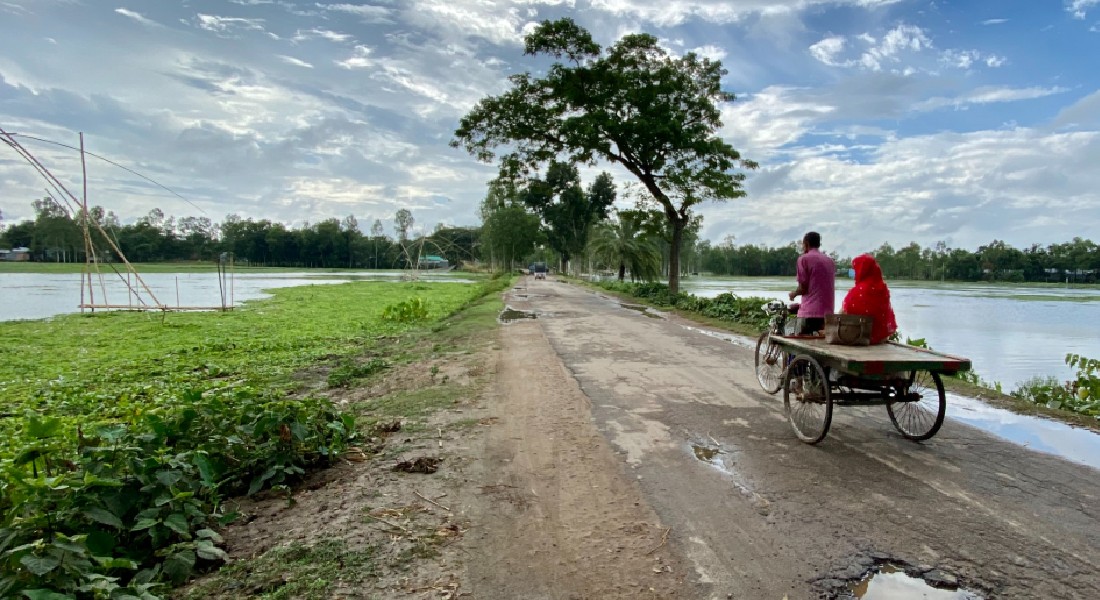WatScarce - Adapting to a WATer-SCARCE future: Climate Change, Health and Hygiene
WatScarce will study 450 households of new migrants and “old” residents in an informal urban settlement on the outskirts of Dhaka. Using the direct impacts of the water-stressed realities as proxies for a Climate Changed future, the project will study how people cope and adapt to a changing environment. WatScarce focuses not only on extreme events such as droughts and floods but also on the everyday realities of households experiencing water stress.

The UN estimates that by 2025, 1.8 billion people will live in places with absolute water scarcity, and two-thirds of the world’s population could be facing water stress. This lack of water is likely to cause an increase in diarrhoeal and respiratory diseases. In addition, Climate Change disruption of people's livelihoods is forcing millions to migrate from rural areas to seek a better life in low-income areas of large cities.
Bangladesh is one of the worst affected countries by climate extremes, and people’s health is heavily affected as a result. In Dhaka alone, the annual half a million new migrants moving from rural areas have to compete with more than 15 million people over diminishing groundwater resources, with water levels sinking 2-3 meters per year.
Until recently, we thought we had a good understanding of the transmission routes of pathogens related to poor water, sanitation, and hygiene (WASH), and simple interventions could prevent diarrheal diseases. However, rigorous randomized trials of household WASH showed no effects on linear growth, and only one study showed a modest impact on pediatric diarrhea. Thus, the complex interplay between these various factors is still not fully understood, and a holistic and interdisciplinary WASH approach integrating One Health is needed for households, especially in low-income countries, in order to adapt to a future impacted by Climate Change.
- University of Copenhagen: Peter Kjær Mackie, Thea Kølsen Fischer, Sara Almeida, Emmanuel Raju, Anne Bach Nielsen, Marie-Louise Kampmann, Wim van der Hoek. Volkert Dirk Siersma
- University of Dhaka: Anowara Begum, Zenat Hossain, Jannatul Ferdous, Tasneem Siddiqui
- International Centre for Diarrhoeal Disease Research, Bangladesh: Rebeca Sultana, Ireen Sultana Shanta
- Centers for Disease Control and Prevention, USA: David Berendes, Firdausy Qadri
- Refugee and Migratory Movements Research Unit: Tamim Billah
Funded by:

Project: WatScarce - Adapting to a WATer-SCARCE future: Climate Change, Health and Hygiene
Period: 2023-2028
Contact
Peter Kjær Mackie
mackie@sund.ku.dk
